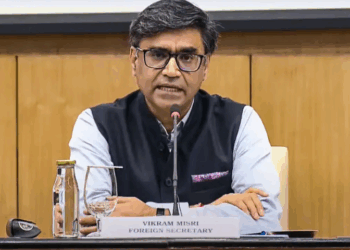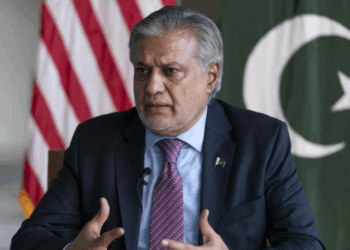Islamabad, May 1, 2025: The Islamabad High Court (IHC) is unlikely to take up Pakistan Tehreek-e-Insaf (PTI) founder Imran Khan’s appeal against his conviction in the £190 million Al-Qadir Trust case during the ongoing year, the court’s registrar office confirmed in a written report submitted to the court.
The appeal, filed on January 31, 2025, challenges the 14-year jail sentence handed down to Khan earlier this year. However, the registrar’s report clarified that the case remains at the “motion stage” and will only proceed once paper books are prepared and it reaches its turn on the court’s cause list.
Citing the judicial case-fixation policy issued under the National Judicial (Policy Making) Committee, the registrar emphasized that hearings are scheduled strictly in the order in which appeals are filed, and no case—including Khan’s—can be prioritized over older pending matters.
At present, 279 appeals filed by convicted individuals are pending before the IHC. These include 63 against death sentences, 73 against life terms, 88 involving sentences exceeding seven years, and 55 related to lesser sentences. The oldest pending appeal involving the death penalty dates back to 2017, highlighting the significant backlog facing the high court.
The appeal stems from the high-profile Al-Qadir Trust case, commonly referred to as the £190 million case. The case revolves around the alleged misappropriation of £190 million (approximately Rs50 billion at the time), which was repatriated to Pakistan by the UK’s National Crime Agency (NCA) in 2019 during Khan’s tenure as prime minister.
The funds were originally part of a civil settlement between the NCA and a prominent Pakistani property tycoon. While the NCA maintained that the arrangement did not represent a finding of guilt, the National Accountability Bureau (NAB) filed a reference in December 2023, accusing Khan and others of illegally facilitating the tycoon by diverting the repatriated amount and concealing the agreement from the federal cabinet.
On February 27, 2024, formal charges were framed against Khan and his wife, Bushra Bibi. NAB alleged that following the cabinet’s secret approval of the deal, Al-Qadir Trust was established to give legal cover to the transaction. PTI leaders Zulfi Bukhari, Babar Awan, Bushra Bibi, and her close friend Farhat Shahzadi alias Farah Gogi were made trustees. NAB claimed that Bukhari later received 458 kanals of land from the tycoon, which was then transferred to the trust—now registered in the names of Khan, Bushra, and Farah, after Bukhari and Awan stepped down.
The case also triggered Khan’s first arrest on May 9, 2023, from the IHC premises—a move later declared “illegal” by the Supreme Court. His arrest sparked widespread protests and violent attacks on military and state properties across the country by PTI supporters.
The trial, which stretched over a year, featured key testimonies from former cabinet ministers Pervez Khattak and Zubaida Jalal, ex-principal secretary Azam Khan, and Al-Qadir University’s chief financial officer. Witnesses revealed that the cabinet was shown a sealed document by then-accountability adviser Mirza Shahzad Akbar and was not fully informed about the transfer of crime proceeds.
Six co-accused, including Bukhari, Farah Gogi, Shahzad Akbar, and Zia-ul-Mustafa Nasim, were declared absconders, with their assets and bank accounts frozen by the court. Meanwhile, Khan’s request to summon 16 defense witnesses was denied. The trial also saw frequent judicial changes, with four different judges presiding over various stages of the proceedings.
On January 17, 2025, Accountability Court Judge Nasir Javed Rana convicted Khan and Bushra Bibi. Khan received a 14-year sentence along with a fine of Rs1 million, while Bushra was sentenced to seven years and fined Rs0.5 million. Failure to pay the fines would result in an additional six months’ imprisonment for Khan and three months for Bushra.
With no likelihood of a hearing in 2025, Khan’s legal team may now look toward alternative relief routes, though the registrar’s report reaffirms that judicial policy does not permit fast-tracking the appeal over older cases.







